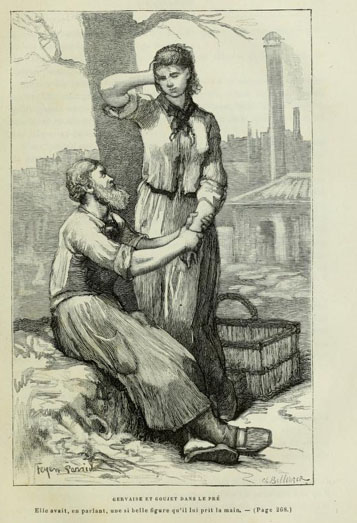 Zola’s pique-nique at the Moulin-d’argent [Silver Windmill] is not a picnic in our contemporary sense. According to French usage, it was a style of dining indoors. When Gervaise Macquart and Coupeau host their wedding party, each guest is expected to pay a...
Zola’s pique-nique at the Moulin-d’argent [Silver Windmill] is not a picnic in our contemporary sense. According to French usage, it was a style of dining indoors. When Gervaise Macquart and Coupeau host their wedding party, each guest is expected to pay a...
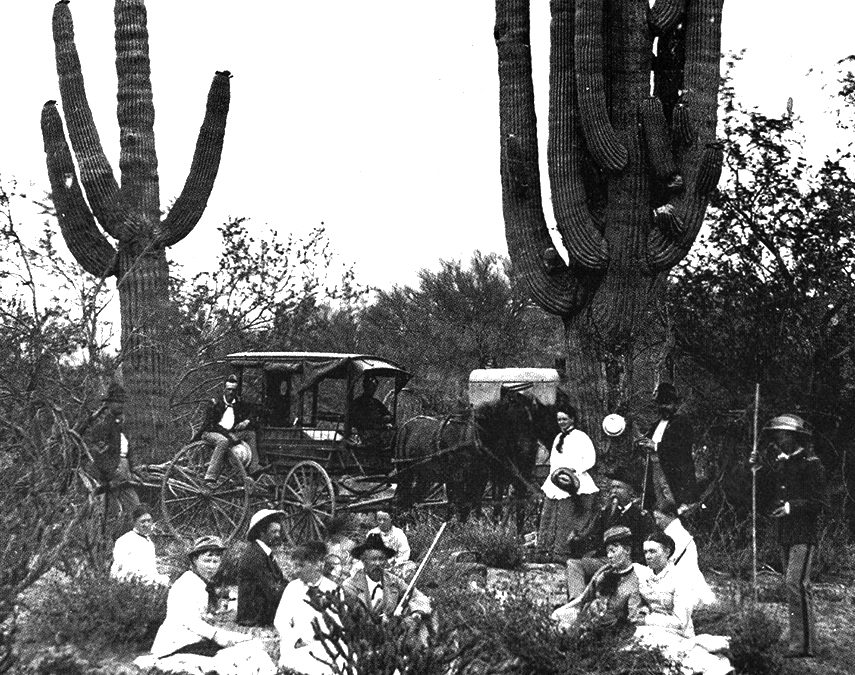 When Rothrock photographed this picnic party of soldiers and their wives and companions in the desert at Fort McDowell, that temperature was probably 92 degrees, give or take. The group had gone to the desert to celebrate May Day, and Rothrock accompanied them. His...
When Rothrock photographed this picnic party of soldiers and their wives and companions in the desert at Fort McDowell, that temperature was probably 92 degrees, give or take. The group had gone to the desert to celebrate May Day, and Rothrock accompanied them. His...
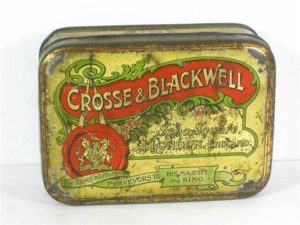 Picnic Ham is a staple cut of pork that’s cheap and needs extensive cooking or smoking. It is sometimes retailed as a picnic shoulder or pork shoulder since it is the entire front leg and shoulder. Retailers cut the meat in two, about six pounds, and may call it...
Picnic Ham is a staple cut of pork that’s cheap and needs extensive cooking or smoking. It is sometimes retailed as a picnic shoulder or pork shoulder since it is the entire front leg and shoulder. Retailers cut the meat in two, about six pounds, and may call it...
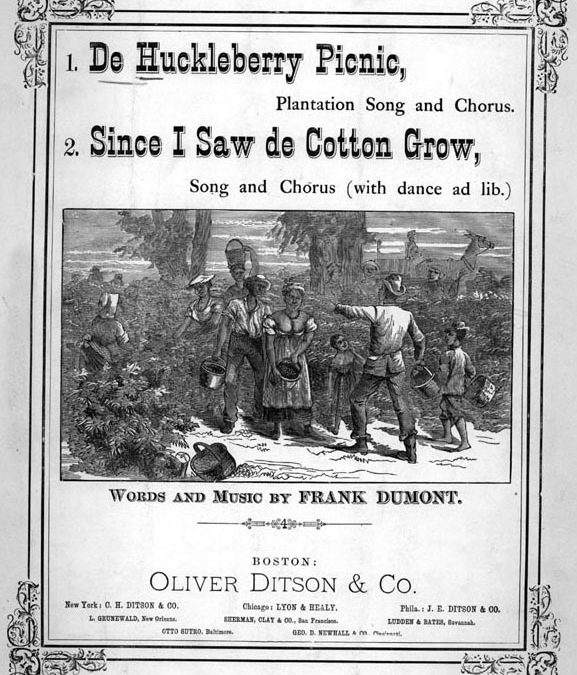 Dumont was not African American. But he was among the most influential vaudeville minstrel players, playwrights, and songwriters of the 19th century. The Witmark Amateur Minstrel Guide, which he published in 1899, was a standard primer for minstrelsy. “De...
Dumont was not African American. But he was among the most influential vaudeville minstrel players, playwrights, and songwriters of the 19th century. The Witmark Amateur Minstrel Guide, which he published in 1899, was a standard primer for minstrelsy. “De...
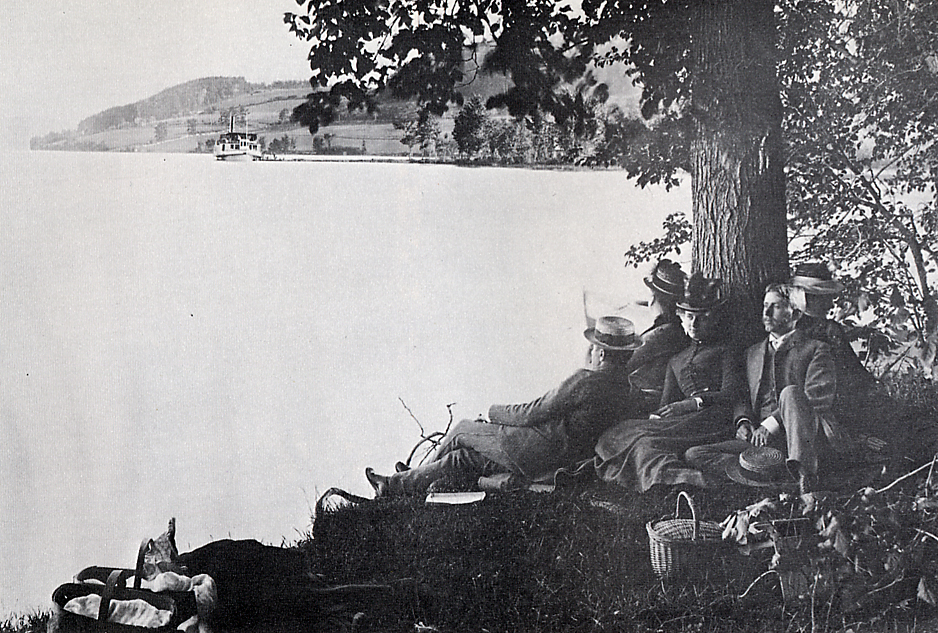 Dakin’s photographs are a record of the family in the 1880s and early 1890s in Cherry Valley, Otsego County, New York According to Pauline Dakin Taft,the family “had a passion for picnics. There were picnics all the time at any time of day. Perhaps the lake was a...
Dakin’s photographs are a record of the family in the 1880s and early 1890s in Cherry Valley, Otsego County, New York According to Pauline Dakin Taft,the family “had a passion for picnics. There were picnics all the time at any time of day. Perhaps the lake was a...
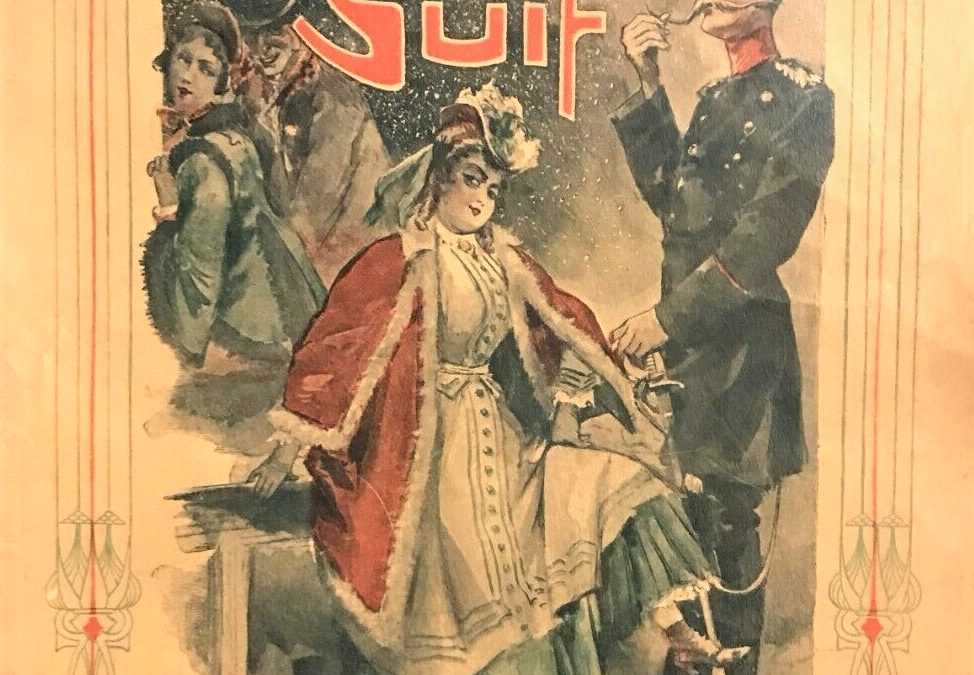 De Maupassant knows that the picnic of this story is not the picnic you expect. Instead of grass, the setting is s a four-horse coach carrying ten passengers fleeing the Prussian army advancing on Rouen for safety at Le Havre. Instead of being congenial, all but one...
De Maupassant knows that the picnic of this story is not the picnic you expect. Instead of grass, the setting is s a four-horse coach carrying ten passengers fleeing the Prussian army advancing on Rouen for safety at Le Havre. Instead of being congenial, all but one...
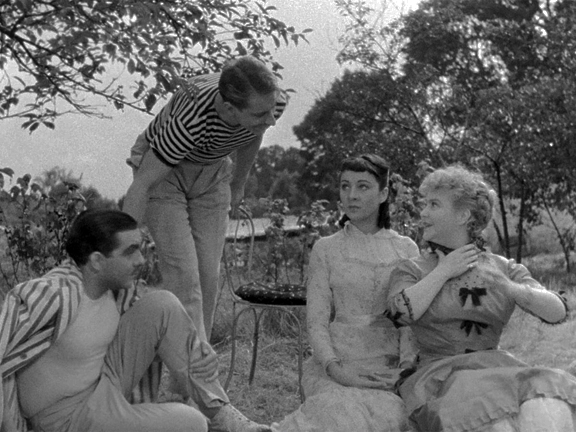 Maupassant uses the phrase une partie de campagne as a euphemism for an outdoor picnic. It’s a sad story about a romantic love that fizzles during a holiday celebrating a birthday, when the Dufours, a middle-class Parisian family, spend a day along the Seine at the...
Maupassant uses the phrase une partie de campagne as a euphemism for an outdoor picnic. It’s a sad story about a romantic love that fizzles during a holiday celebrating a birthday, when the Dufours, a middle-class Parisian family, spend a day along the Seine at the...
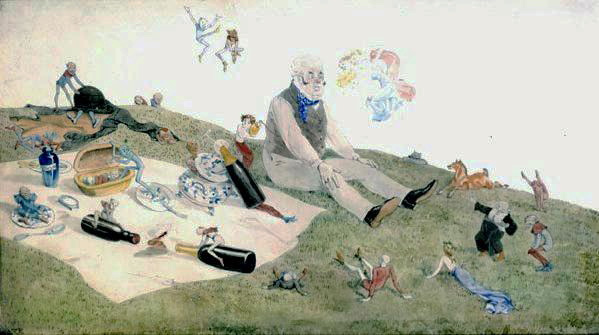 Altamont’s The Enchanted Picnic (1882) is a sad picnic that is neither enchanted nor pleasurable. The picnicker, perhaps Doyle himself, having finished four bottles of wine and champagne, is pleasantly suffering delirium tremens. Instead of monsters, the drunk...
Altamont’s The Enchanted Picnic (1882) is a sad picnic that is neither enchanted nor pleasurable. The picnicker, perhaps Doyle himself, having finished four bottles of wine and champagne, is pleasantly suffering delirium tremens. Instead of monsters, the drunk...
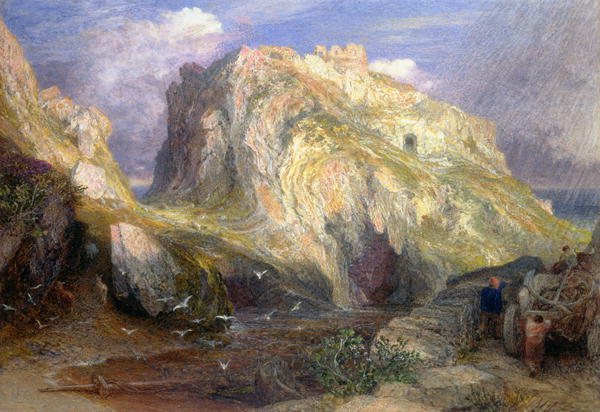 Tintagel Castle and its Arthurian associations have perennial romantic appeal—but Mary Elizabeth Braddon is the first to fictionalize a picnic on the crag, and it’s her addition to Britain’s mythology. With lunch from a local inn, Christabel Courtnay,...
Tintagel Castle and its Arthurian associations have perennial romantic appeal—but Mary Elizabeth Braddon is the first to fictionalize a picnic on the crag, and it’s her addition to Britain’s mythology. With lunch from a local inn, Christabel Courtnay,...
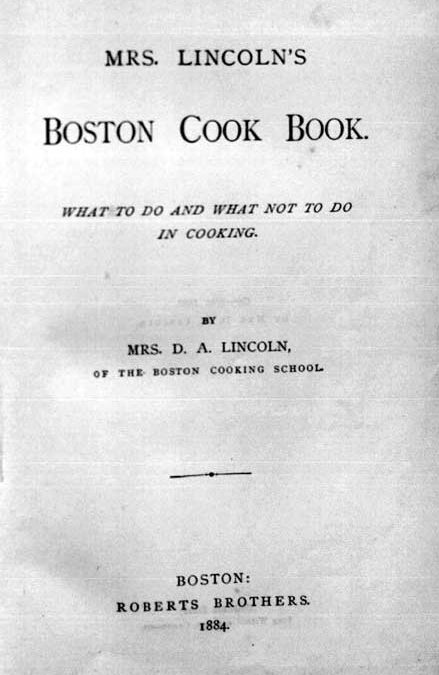 Lincoln’s Mrs. Lincoln’s Boston Cook Book: What to Do and What Not to Do in Cooking was influential, especially because Fannie Merritt Farmer was among her students at the Boston Cooking School. Specifically, Lincoln offers these “Picnic...
Lincoln’s Mrs. Lincoln’s Boston Cook Book: What to Do and What Not to Do in Cooking was influential, especially because Fannie Merritt Farmer was among her students at the Boston Cooking School. Specifically, Lincoln offers these “Picnic...











